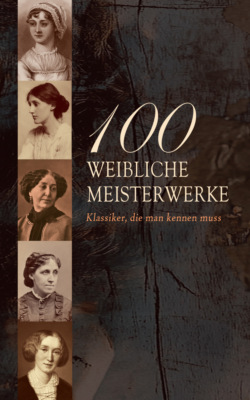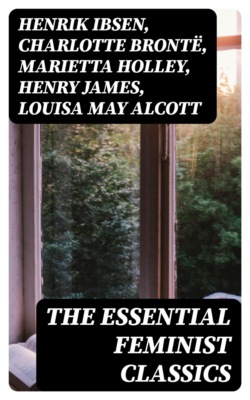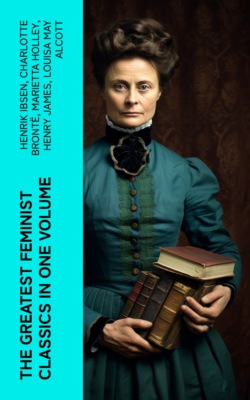Kitabı oku: «The Two Marys», sayfa 8
She looked at him with those keen eyes; though she kept up wonderfully her air of lofty scorn and indifference, it was possible to perceive a gleam of something else, a mixture of satisfaction and anger in her face. “It is part of the rôle, of course,” she said, “to call me by my Christian name. But Leonard Crosthwaite, whatever he might be else, was a gentleman. So you will keep to your part better by acting like a gentleman in this point. That is one way of making an impostor look like him.”
He restrained himself with an effort. “What am I to call you then?” he said, looking at her sister. “Has she never married? How wonderful that is! Miss Crosthwaite then: since you wish it, I will call you so.”
A momentary shadow of humiliation went over the proud face. She had chosen not to marry. She had always been beautiful, and she was not without fortune; but nobody whom she thought good enough had ever asked Anna Crosthwaite to marry him. And she did not like to remember this in presence of her old lover, whom she had loved once in her silly youth, though she forsook him: it was not, however, because of that love, or anything connected with it, that she received him thus now.
“I am Miss Crosthwaite,” she said, “though you affect to be surprised. It is not all a woman thinks of to marry any fool that turns up, and to become the mother of fools. Go away to your son, Mary. That was your ambition: as it is your folly now, to believe in every deception, and allow yourself to be led by the nose. I think your protégé had better withdraw too, now that I have seen him. He has not a feature of poor Leonard Crosthwaite,” she added, eyeing him steadfastly. “No one, I suppose, can doubt my capacity to judge. His complexion is different, his features are different. Go away, sir, and be thankful we don’t turn you over at once to the police.”
“Is this,” he said, half-stifled with astonishment and indignation, “is this all you have to say to me – ”
“It is all I have to say to you,” she said; “and this is my room, where I am supposed to have some right to choose my visitors. Go! You can do anything you please; I, for one, am not afraid of you. You may go.”
He burst out laughing at the extraordinary perversity of the scene. If he had not laughed he must have been furious – it was his only deliverance; and yet it may be supposed there was not much laughing in his heart.
“This is the most extraordinary reception to meet with,” he said, “after coming so far, after staying away so long. If it is a jest, it is a bad jest, Anna. Suppose that it is hard upon us after all this long interval, to look upon each other with such changed eyes – still there is such a thing as justice. You know me as well as I know you. It is by instinct – it is because we cannot help it. For, heaven knows, you are as unlike the Anna I left as night is to day.”
She did not reply. A hasty gleam of passion came out of her keen eyes. Then she put out her hand to the bell. “Simmons,” she said, “will see this person to the door, Mary. I don’t want to be hard upon any acquaintance of yours; you know a very strange set of people, I must say; but I will not be insulted. Simmons must see this person out of the house.”
The other sister looked at him with a look of agonised entreaty, clasping her hands. He was touched by it, though his only answer to Anna was another outburst of harsh laughter. “I would not like to be in your Simmons’ shoes,” he said, “if he tries to see me anywhere that I do not choose to go. But I do not care to thrust myself on anybody. Good-bye, Anna; we shall meet ere long in different circumstances, never fear.”
With that he went out hastily into the hall, where the sentinel candle was still burning. There he was met by a young man who looked at him surprised. There was so much resemblance in this new-comer to the lady called Mary that there could be no doubt who he was. The Canadian did not pause to inquire. He put his hand on the young man’s arm – “Come out with me, or take me somewhere where I can talk to you. There is a mystery that wants clearing up, and you can help me. I am your mother’s cousin, Leonard Crosthwaite. What! you have heard the name before?”
“Indeed, I have heard the name; but you were supposed to be dead long ago,” the young man said.
“I am not dead – your mother will tell you – I am newly returned from Canada. Tell me what reason there is to wish me dead,” he said peremptorily. “It will be no worse for you – ”
“No reason at all, sir,” said the young man promptly. “I do not know who you are, but there is nothing to conceal. You are welcome to hear it all from me.”
Then he led the visitor into a small room at the other side of the hall, into which after a while the young man’s mother stole softly, crying and greatly agitated. She was startled beyond measure to find the visitor with her son, to whom she was going for consolation. But they were not long in convincing her that it was better that all there was to tell should be told.
When Mr Yorke left the house it was very dark and cold, and the rain beginning to drizzle. Young Geoffrey Underwood would have gone with him, or, failing that, pressed all manner of wraps upon him, as his mother had pressed refreshments: but the Canadian smiled at the cold, and the dismal, continuous, but not violent rain. “I am used to worse cold than this,” he said. He went out into the night, more grave than when he had entered, but with a fire in his eye and in his heart of which there had then been no sign. He walked slowly along making calculations, arranging his course of procedure as he went down the hill. The rain came down faster and faster, till it swept like a great sheet of water from the inky sky. It swept all the suburban streets both of passengers and vehicles; nothing was to be seen but the wavering dismal lamps, making distorted reflections on the wet pavement – not a cab, not a place of shelter. Mr Yorke was drenched to the bones and chilled to the very heart.
CHAPTER III
AN evening in a hotel is seldom cheerful, and this evening was very forlorn. Mr Yorke did not return, though the hour for which he had ordered dinner was past. The girls sat very dolefully one on each side of the table, and read the books which had been provided for their amusement on board ship. Everything had been so lively on board ship, there had been so much society, so many expedients to make the time pass pleasantly, that they had not required to have recourse to these works. It was very strange and dreadfully disenchanting on their first night in London to be compelled to take to this way of getting through the evening. They expected to have been dining, cheerfully chatting about all their impressions, or, perhaps, though it was the first night, to have been taken to a theatre, and seen Shakespeare, perhaps, on Shakespeare’s native soil. Perhaps if they had attained this object of their desires they might not have found it much more satisfactory – but then that did not occur to their fresh minds. And instead of such delights, to find themselves seated in a common-place room with a lamp which smoked, and two dull novels, and the rain coming down in bucketfuls outside, was as dreary and disappointing a termination to the day as could well be supposed. The solemn waiter came in and laid the cloth, and the girls had to change their places. Grace went to the window and gazed out at the pouring rain and the street lamps twinkling feebly through it. Milly sat down vacantly in a big chair, too far off the lamp to continue her book.
“I beg your pardon, Miss,” said the soft-voiced waiter: “will you have the dinner up, or wait till the gentleman comes?”
“O, Grace!” said Milly, startled, appealing to her sister.
“Of course, we will wait for papa,” said Grace, turning round from the window.
When the man went away poor little Milly, overtired and depressed, fell a-crying. “Oh, how strange it is! Oh, how lonely it is!” she cried. “I feel as if there was nobody alive – nobody that knew us.”
Grace’s lip twitched and quivered a little too. “How silly!” she said; “this is how you always are – up to the skies one moment, and down to the depths the next. What does it matter if nobody knows us? Two of us can go through the world – with papa.”
“But what has become of papa?” said Milly.
They did not know what to think. He was not a man to be out at night, nor, though he was so undemonstrative, was he a man to abandon his children to an evening in an inn by themselves. Could anything have happened to him? There flashed across the minds of both recollections of stories they had heard, of sudden disappearances, stories mixed up in a great confusion with the Morgue, of which they remembered the name and the dismal use, without clearly remembering where it was; and of people found in the river, and all kinds of terrible catastrophes. These were so much too terrible, however, that after a while Grace laughed.
“What are you laughing at? I don’t feel at all like laughing,” Milly said in an aggrieved tone.
“We are behaving as if something had happened,” Grace said; “such nonsense! Papa has been detained, that’s all. I hope he is not getting wet out in this rain.”
“Oh, I hope he is not getting wet!” Milly said, rising up hastily and running to the window. Milly had a turn for taking care of everybody’s health. She was pleased with the importance of being a little “delicate” herself.
“I don’t see how he should,” said Grace with another laugh, which was somewhat forced, “when there are cabs at every step. Of course, he has not made up his mind to get wet, or to get lost, or to have an accident, solely to make us uncomfortable the very first day, like a naughty child. The dinner will be spoiled; that is all that will happen.”
“As if it mattered about the dinner!” said Milly with feminine indifference, coming back from the window. The rain was not quite so heavy, and their spirits began to rise.
“Here is papa’s letter-case with all the introductions. Let us look them over and imagine what sort of people they will be. First of all and foremost,” said Grace, “Lord Conway; that is our Minister. He was once at our house – don’t you remember, Milly? years and years ago, when he was the Honourable Mr Something-or-other; at least I have heard mamma say so – ”
“Mamma would be sure to say Something-or-other. Of course he will come directly and call – ”
“And ask us to go and stay there,” added Grace seriously, “which would be grander than a hotel; but then one would not be so free to go out and in. I think I will advise papa not to go, or to go only for two or three days, to see how noble people live. To be sure,” she added, “if he is not married – I wonder if he is married? – he could not ask us; unless he has a mother, or sister, or something, to keep his house.”
“He is sure to be married,” said Milly, “if it is so long since he was in Canada – longer than we can recollect; and a Minister too: he must be quite old!”
“On the contrary, the Minister for the Colonies is often quite young, I believe,” said Grace. What she founded this opinion upon we are unable to state, but it was Grace’s peculiarity that she liked to be wiser than her neighbours. “Put Lord Conway on one side. Now there is Sir John Didcot. He is married; there is not any doubt about that. Don’t you remember him, Milly? – a fat man who had to do with railways. He was dreadfully rich. I should think very likely they live in the country, and would ask us for – Easter, or that sort of thing. Everybody in London goes out of town for Easter. There are several national solemnities of that kind, you know,” said Grace half satirically, half complacently. “Easter, and the Derby-day, and the 12th of August, and a few more.”
“What do people do on the 12th of August? But we shall be back home,” said Milly, “before that, shan’t we? How nice it will be to get back home. I shall make papa buy loads of presents – presents for everybody. I was thinking only to-day what Lenny would like, and old John.”
“It is rather too soon to think of presents for home, considering we only arrived yesterday,” said Grace: and then she, too, breathed a small sigh, thinking of the bright room at home with all the boys laughing and questioning, and the tables covered with the presents they would carry back, and the baby, the darling of the whole house, seated triumphant in the midst of them, the fairy distributor of all these riches. Though it had been such a great thing to come to England – though it was such an ecstasy to be in England – yet, after all, home was a different matter. She gave a glance round this inn parlour, and smothered another little sigh.
“I suppose we shall have to go to the Didcots,” she said, “sooner or later. Oh, after that here is something delightful! Mr Rivers, the author – you know. Of course, he will ask all the best people to meet papa. That will be far the most interesting of all. Fancy, perhaps we shall see Tennyson!” Grace raised a pair of great brown eyes opened wide with awe and rapture. “I wonder how one ought to behave one’s self to a great poet. I should like to go down on my knees and kiss his hand.”
“Ladies never go down on their knees – except to the Queen,” said Milly, rousing up. “I wonder if we shall be asked to Windsor Castle or Buckingham Palace, or any of those places! It would be nice to know the princesses, don’t you think?”
“We ought to be,” said Grace sedately, “for papa had so much to do for the Prince of Wales. Oh!” cried the loyal colonial maiden, clasping her hands, “do you think the Princess will ask us, Milly? He will tell her, of course, who we are. That beautiful, beautiful creature! I don’t know which of the two would be most delightful – the Princess or Tennyson. One would have to call him Lord Tennyson, as if he were nobody, a common peer,” she added with a plaintive tone; “but to the Princess one would say Madam, or Your Royal Highness.”
“Cissy Nunn told me you only said Ma’am.”
“Cissy Nunn had no manners,” said Grace. “I like titles; they are so pretty. Everybody that is beautiful, or delightful, or has genius should have some beautiful title. Princess! – that is what I should like to call her; but I suppose you can only do that when you are intimate – and I am afraid, with so many people as she must have to see, that’s not very likely,” the girl said regretfully.
Thus they went on talking the greatest nonsense in the world without suspecting it. The Yorkes were persons of importance at home. Whenever a great personage from England appeared there, he was received with all the resources of their simple and graceful, but by no means magnificent, hospitality. The distinguished visitors accepted all these little attentions cheerfully. They were the best to be had in the place, and they were characteristic of it, and amused the wandering peers and lions as much as if their hosts had been lions also, or peers. But it need not be said that the Colonial Secretary was very unlikely to invite the Yorkes to make his house their home, though that was how they had treated him; and that even the most amiable of princesses would not feel herself bound to invite, nor her august spouse even to recollect the name of the good colonial people who had been altogether at his service. Nay, we doubt much if the author would have felt himself bound to assemble a literary party for the admiration of the Canadian family. The simplicity of the girls considered all these natural returns of their hospitality not only as natural, but inevitable, though some doubts on the subject of the Princess did cross their minds. Still they could not help thinking an invitation was at least possible. These anticipations kept them amused, and made them forget the passage of time. The bland waiter came up to the door, and looked in more than once. Finally he entered, and asked respectfully if they would not like to have dinner served? Then they looked at each other blankly, relapsing all at once into alarm and gloom.
“Perhaps it will be better to have it put upon the table,” said Grace, faltering.
“I couldn’t eat a morsel,” said Milly energetically.
“Oh, hush!” said the elder sister, “most likely the people are angry having to wait so long.”
And this argument was too strong to be resisted. They were still a little afraid of making people angry, and loved to please everybody they were brought in contact with. Then came the soup, cold, which they tried to swallow; then a terrible soaked rag of fish. But the next moment Mr Yorke himself walked in. He told the girls hastily that he had been caught in the rain – that he had been paying a visit in a suburb, where cabs were not to be got easily, and that he was so wet and it was so late that he would go to bed at once and have something brought to him to his room. This was a climax to the discomfort of the evening. They sent away the joint notwithstanding the almost tears of the waiter. “Oh, what do we care for dinner!” the girls cried. They had been warned when they left home that, above all things, they were to see that their father did not catch cold.
“Mamma will think it is our fault,” said Milly, with quivering lips. Who had ever heard of papa going to bed unless he were very, very ill? Even Grace, though she had so much strength of mind, could scarcely keep from crying. “Oh, how I wish we had never left home!” she said. “Oh, if mamma were only here!” said Milly. Left to their own resources, they could think of nothing but a longing, useless appeal to the one authority. Mamma would know what should be done in such an emergency. She would understand at a glance the position of affairs, and whether he might safely be left alone, or what should be done for him. The girls knew that he was a very difficult patient, and that nobody but their mother could persuade him to attend to himself. It was a terrible problem for them so soon, before they had even awoke to the possibility of such an accident; for who ever thought of papa falling ill? it had been the thing against which no precaution had been taken. The girls had a little medicine chest full of Mrs Yorke’s domestic preservatives, and had received the minutest directions respecting their own health – but papa! “Take care your father does not catch cold,” she had said: but that was all. He had always been subject to bad colds. “But what could we have done?” Grace asked of herself unconsciously, hearing her mother’s warnings in her ears. After a while she ventured to go to his room to see if anything could be done. Mr Yorke had not gone to bed; he was sitting by a fire which smoked a little, in his dressing-gown, with a steaming glass of brandy-and-water by his side. He did not send away the girls, who floated into his room with a doubtful air, keeping close together like a pair of doves; but he looked up with restrained impatience from some letters he was reading. “What is it?” he said. Oh, not crossly – not at all crossly! they said afterwards; but keeping from being cross with an effort. The letters he was reading were old letters. Some lying on the table before him did not seem even to have been opened. He threw his handkerchief over them as the girls came in. “What is it?” Clearly he had found something which was of more interest to him than anything they could do or say.
“I hope you have had something to eat, papa,” said Grace.
“I don’t want anything to eat. I am taking this by way of precaution,” he said.
“But you ought to eat. There is some mutton; it is quite hot still. May I ring and ask the waiter?”
“Don’t take any trouble about me. Don’t you think I am old enough to look after myself?”
Grace did not know what to do. Her mother, as she felt certain, and as Milly immediately suggested when they left the room, would have asked no questions; she would have had a tray brought in quite noiselessly without saying a word, and made him eat something. “Why didn’t you run, then, and ask for the tray if you knew that was the right thing?” Grace asked afterwards, aggrieved: but Milly had not the courage to take any initiative.
They stood for two or three moments more, looking at him with an anxiety that was altogether helpless.
“Is your cold in your head, papa? Is it in your chest? Have you got a cough? Do you feel any pain? Shall I bring you some lozenges?”
Poor Grace! she was cudgelling her brain to know what to do; but to ask questions was just the thing she was never to do. In the flurry and agitation of her feelings she forgot that.
“There is nothing the matter with me,” said Mr Yorke. “I have got a little cold; that is all; not to-night; I felt it when we landed. Go to bed. You must be tired too.”
“But, papa – ” said Grace, gazing at him anxiously, helpless, with nothing to suggest, yet a scared consciousness that there was certainly something that she ought to do.
He had the air of a man interrupted in something much more interesting than their girlish talk. A little pucker of impatience gathered in his forehead; but he was too serious to smile, or to make a joke of it, as he often did. And there was a flush on his face, and he was very hoarse, looking exactly as he did when he caught one of his worst colds.
“Well,” he said almost harshly, “have you anything particular to say? If not, you see I am busy. I should prefer to be left alone.”
Grace’s anxious eyes were surveying him from head to foot. Milly, behind, plucked at her sleeve, meaning to convey some suggestion which she could not put into words. They wanted to do something – anything: but neither of them had the least idea what. Milly, who thus tried to prick her sister into exertion, was still more destitute than Grace was of any perception what to do.
“Good-night then, papa,” said Grace slowly. She stooped over him to kiss him; and, oh, how hot his head was! One of his worst colds! and nobody here who knew what ought to be done, or what the danger was.
“Good-night,” he said quickly. He gave a little sigh of relief as they went away, and turned back to the papers which he had hastily concealed. The girls saw this and it did not console them. They went back much depressed to the sitting-room, which had never been very bright, and which now was doleful beyond description. And this was their first night in England! Hearing, however, a furtive sob from Milly, Grace turned round upon her quite suddenly, and “snapped her up.”
“Well!” she cried, “after all, it is not anything so very dreadful; papa has a cold; he has often had a cold before. He is busy with something. I don’t see why you should make a fuss about it. I dare say he had something to eat when he was out. An old friend would be sure to offer him something. Of course, he will be better to-morrow; and we had better take his advice and go to bed.”
Now Milly began to cry in earnest. “We did not come to England all this long way,” she said, half miserable, half indignant, “only to go to bed.”
At which, though she was not much happier than Milly, Grace laughed. “Of course,” she said, “you little goose, the first thing we do everywhere is always to go to bed. We must do that. You may live without going to the theatre,” Grace added philosophically, with a little sigh, “without going into society – but not without going to bed.”
Nevertheless it was forlorn to be able to think at nine o’clock of no other way of spending the evening. They occupied a little of the vacant time by ordering tea, for the spoiled dinner had not tempted them; and then sadly enough they put back the letters of introduction into the letter-case. It seemed less probable now somehow, they could not tell why, that the Princess would take any notice of them, or that Lord Conway would carry them off to his house. They put away those passports to society, through which they had seemed to have a momentary glimpse of everything that was splendid. As they did so a little piece of paper fell out. Milly took it up and read it first; then Grace came and looked over her shoulder. It was very inoffensive and unimportant in appearance – a simple address, 3 Grove Road, Hampstead, written in their father’s hand. He had sent, they recollected, for the Directory and taken an address out of it that morning. Could this be where he had been visiting – the suburb in which he had not been able to get a cab? A slight tremor ran over them, a sense of mystery which could scarcely be called disagreeable. Who could it be who lived at 3 Grove Road, Hampstead? And why had he gone the very first day to call there? The girls held their breath. Visions of some old love, far too old to be anything but a memory, came into their minds. They were divided between a little jealousy on their mother’s account and a romantic interest about the unknown.
“It is a lifetime since he left England,” said Grace with emphasis. Their imaginations leaped into a whole romantic story. They put back the scribbled address into the letter-case with a sort of awe. They had never been so much interested in their father before.
“I wonder who she is,” Milly said softly under her breath. “I wonder if we shall ever see her.”
“Whoever she is,” cried Grace, “and whether we see her or not, you must recollect – not a word, not a word to mamma!”
“As if I were such a goose!” cried Milly. “But she must be so old – so old! Mamma would not mind.”
This discovery, or supposed discovery, relieved them from the nervous alarm and misery which was beginning to overpower them. After a while they even laughed softly under their breath. Papa’s old, old love affair, though it was interesting and even touching, as a relic of the ancient ages, was yet more or less amusing too. They put back the scrap of paper along with all the big, imposing letters, which were so much more pretentious, but which it was very evident their father had not been nearly so much interested by. They liked him for going there first of all: and then they permitted themselves a little laugh.
“I dare say,” said Grace, “they were quite young when they were parted. How strange it must be to meet after so many years! One reads of it in books sometimes. I wonder if he will take us to see her. I should think she would like to see us – if she is nice,” she added with a little hesitation.
“She must be nice,” said Milly, “or he would not have remembered all these years, and gone to see her the very first minute. I wonder if mamma would be angry, Grace? I wonder if she is married too?”
“Oh, no, no!” cried Grace, decidedly. “Men may do that, but not women. You may be sure she has lived all the time – oh, not making herself unhappy – but always faithful! She will be good; she will do all sorts of things for people; but marry – no! I hope he will take us to see her. It is like England. It is what I have always thought of England. People are so faithful here. Not changing about, not always looking for something new. I do hope he will take us to see her, Milly.”
“I suppose mamma would have no objection,” said Milly, her mind somewhat divided on the subject.
They exhausted this new theme, looking at it from every side. And at last, much more cheerful – having, indeed, to exercise restraint upon themselves not to chatter too much as they passed their father’s door, and perhaps disturb him – they went to bed, no longer thinking it so dismal. This hypothesis, which was built upon so slight a foundation, was on the whole the most amusing and the most interesting suggestion that had ever yet entered their minds in respect to papa.










